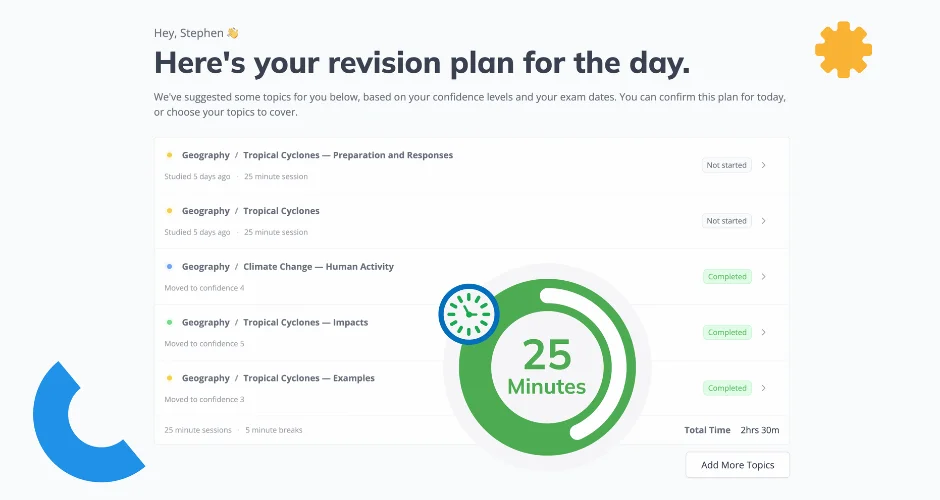GUEST POST
How to Effectively Revise for Your GCSEs and A-Levels

GCSE and A-level students are finding that their exams are now imminent. By June 20th they will all be finished. Students often ask, “How do I revise?” or, more basically, “How can I motivate myself to revise?”
Motivation to Revise
Use Attractive Stationery as an Incentive
It is surprising how helpful an incentive attractive stationery items can be: a novel set of coloured pens, a nice bound notebook, a set of flashcards, post-it notes or whatever you find attractive and fun to use.
We have to be honest and admit that the appeal of such things is not limited to primary school students and can provide a necessary initial commitment towards your revision.
Reward Yourself with Treats
Also related to motivation is the question of other activities, those that can be considered as treats in relation to the revision. There are two points here:
- It is counterproductive to do only revision in all your spare time; there needs to be a balance, and the revision itself will benefit from this. Amongst other activities, those that are particularly helpful in achieving a healthy balance are physical activities, given that revision is essentially sedentary.
- Do your revision first, and the treats afterwards as a reward for the revision!
Remember Your Long-Term Goals
While stationery items and immediate rewards can be helpful, it is important not to rely solely on these material incentives.
Students should feel a sense of pride in their education and reflect on whether they want to make the most of the opportunities they have to learn at school. Good exam results can open many doors, providing opportunities for further education, career paths, and personal growth.
Keeping your future ambitions in mind can significantly enhance your motivation to revise effectively.
Getting Started: Overcoming Procrastination
Now, there is the question of how to actually get started and not constantly postpone revision, and therefore also the treats! For more in-depth knowledge on hacking your productivity, check out this guide by a head psychology teacher.
One answer to this is to decide in advance, maybe the day before, exactly what task you are going to start with and specify a small goal to achieve. Ideally, start the day with something difficult. it is likely a task you’ve been dreading that needs the most work before exam day and is therefore the easiest to put off.
Everyone works a bit differently. So, be aware that if you’ve tried this a few times and it has taken up most of the day, leaving you downbeat about your progress - it may be best for you to switch to a different approach. Just remember that failing at a difficult task or goal is still progress!
Keep the possibility of doing the opposite and starting on something easier as doing something is better than nothing! It is getting going that is hardest, and once you have started and completed a few easier tasks, you will feel more confident in diving into the harder tasks.

Structuring Your Revision
Given that you are revising a large body of material, it is important to consider the order to do it in. For example in Biology, it would be a mistake to try and learn gene technology, or the complex processes of respiration and photosynthesis, without a sound knowledge of biological molecules, that is DNA, proteins, carbohydrates and lipids, as all biological processes depend on them.
The subject specification itself is the most valuable resource for structuring revision in this way – it is essentially a list of the included topics, what will be examined and how it will be marked. Ignore this at your peril!
Each exam board writes theirs a little differently. Step one should be gathering the specifications for your subject from their website (eg. AQA GCSE Biology or Edexcel A-Level Maths)
The specifications do not give the questions, which often have to be subtle and indirect, but you can be certain that the answers must be from within the material listed in the specification. For memory-rich subjects like biology, many teachers give out lists of the items on the specification with boxes to tick when you have reviewed and mastered them.
Effective Revision Techniques
The first thing many students do is to make their own notes on the topics in their curriculum specification (using those attractive stationery items!). These have to be notes that you fully understand; it is no use copying things from the textbook if you don’t understand them. The points you don’t understand you can note down and ask a teacher/tutor or do your own research in another session.
Don’t let it derail your revision, it’s fine to make a note and move on in the early stages. This is the most cost-effective way of using an online tutor, rather than having them teach you material before you have even tried to learn it yourself.
Another helpful tip is to use alternative sources and media types to learn the information. Don’t just stay with the textbook you have been assigned, as you may find that however many times you read it, it doesn’t make sense. Summary revision guides like CGP are useful, but it can also be very helpful to use an alternative textbook or other online resources like quizzes, diagrams and cheat sheets as long as they are relevant ot your exam.
Beyond making notes in your own words, there are several more key revision techniques. Another blog on Sherpa goes through 10 lesser-known techniques that improve the retention of information and also keep things interesting. For now, we will focus on the 2 most common and effective techniques:
Active Recall and Self-Assessment
You only remember things if you think about them. Simply reading and rereading notes is not going to be effective; you have to make the effort to recall them. The overall principle is to:
- Review your notes (which you fully understand).
- Try to reproduce them from memory.
- Note what you didn’t get right.
- Continue the cycle until you can reproduce the material twice without mistakes.
Of course, notes can be in bullet-point form or even more concisely, depending on the subject, in the form of a diagram.
These notes can get more and more specific to topics or common questions and end up on flashcards with the answers on the back. The idea is that you can pick these up to flick through at any time and test yourself while hiding the answer.
Practice with Past Papers
Once you have actively learned the material, you can start working through past papers to practise applying the knowledge. You can find these online from the exam board websites.
Do not use the mark scheme they include lightly. There are limited past papers available, so it is a big mistake to immediately resort to the mark scheme if you don’t understand a question.
Try to answer without reference first, then with your notes, and only as a last resort consult the mark scheme. If the answers still aren’t clear, ask a tutor/teacher or go online to research a breakdown of a similar answer.
Once you can confidently finish a past paper without help from your notes, try doing it under exam conditions with a timer and no phone or music for example.
Consider Private or Group Support
In the run-up to exams, it can be difficult to concentrate alone and stay motivated long enough to work through something you don’t understand. Tutoring can be useful as you’ll be motivated and supported by a professional tutor or by the other students in your position.
It’s important to do this in groups small enough to tailor the work to your specific needs and ask any questions you need. Group revision with friends should be done with caution! It always helps to have a parent supervise or do this somewhere public or quiet like the library.
For 1:1 support, consider using Sherpa for access to an experienced online tutor.
Plan Your Revision Timetable
Plan your revision to complete all topics with a slack period before the exams. Covering 100% of the specification with 80% retention is vastly more effective than covering only half the material perfectly.
In that regard - may I recommend a reflective revision planner? The main difference between this and the usual revision calendar is that it is much more flexible and easy to update as you reflect on how your sessions have gone so far. It solves the problem of trying to plan a week or two of revision before you’ve even started and know what subjects need more attention.
Sherpa has its very own tool you can use to organise and track your GCSE revision sessions to ensure you cover everything. If you are not doing GCSEs, read this blog on how to create your own modernised version of a revision timetable.

The Importance of Rest
Do not stay up revising the night before the exam. Much of exam success relies on thinking clearly under pressure, which requires adequate rest. Consider this: marathon runners don't train the night before—they rest. So should you.
Happy Revising and Good Luck!
Parents
Students

Jonathan B
Tutor
Experienced qualified Science teacher, former Examiner, Ph.D researcher
Looking for a tutor?
Sherpa has hundreds of qualified and experienced UK tutors who are ready to help you achieve your goals. Search through our tutors and arrange a free 20 minute introduction through our industry-leading online classroom.
Find a TutorSimilar Articles




